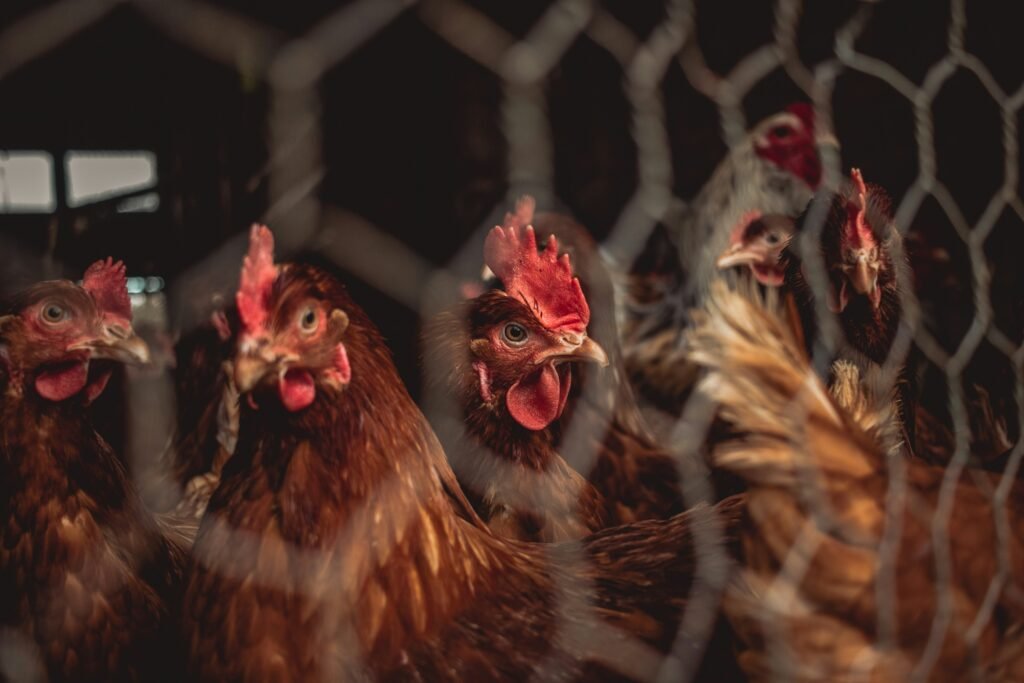In a joint letter, more than 100 organisations and academics have called on the FAO to retract a major UN report over “serious methodological errors” that “downplay” the environmental impact of reduced meat and dairy consumption.
Addressed to the FAO’s Director-General, Dr Qu Dongyu, the letter concerns the FAO’s Pathways Towards Lower Emissions report, published at COP28 last year.
In the letter, the authors write that it is “extremely concerning” that such basic failures of analysis made it into the report without being flagged during the peer-review process.
Report “Completely Out of Step” with Scientific Consensus
Coordinated by Feedback Global and signed by organisations such as Greenpeace, Changing Markets Foundation, and Friends of the Earth US, the letter argued that the UN report “erroneously” downplays the emissions mitigation potential of dietary change and is out of step with other peer-reviewed science, such as EAT-Lancet and the IPCC’s Special Report on Climate Change and Land.
The letter outlined that the report’s estimate that dietary change has the potential to reduce livestock emissions by only 0.19- 0.53 Gt CO2-eq per year is “completely out of step” with the United Nations institutions and general scientific consensus.
Indeed, it wrote that, comparatively, the International Panel on Climate Change (IPCC) found, with “high confidence,” that a shift to more plant-based diets could mitigate GHG emissions by between 0.7 – 8 GtCO2-eq per year. Further, it outlined that higher reductions in meat and dairy would lead to higher emission reduction.
Likewise, the letter also referenced a recent survey of over two hundred climate scientists and food and agriculture experts. The survey, from researchers at Harvard University, New York University, Leiden University, and Oregon State University, outlined that global livestock emissions need to be reduced by 50 per cent by 2030 and 61 per cent by 2036 to limit global warming in line with the Paris Agreement.

The survey also found that 85 per cent of those surveyed, of which 60 per cent authored IPCC reports, agreed that a shift from livestock-derived foods to livestock-replacement foods is key to aligning with the Paris Agreement.
This letter, signed by 78 civil society organisations, 22 academic experts, Connecticut State Representative David Michel and investor Adasina Social Capital, follows a similar call for retraction back in April from academics Dr Paul Behrens and Dr Matthew Hayek.
Dr Behrens and Dr Hayek put forth that the UN report “seriously distorts” the findings of scientific papers of which they are co-authors.
In the letter, the coalition of NGOs and experts spotlight the two academics’ findings that the FAO “likely underestimated” the emissions mitigation potential of dietary change compared to a business-as-usual (BAU) 2050 scenario by a factor of “between 6 and 40.”
UN Report Contains “Numerous” and “Serious” Errors
However, the letter outlined that the errors in the Pathways report are “numerous.” This includes everything from double counting meat emissions to 2050 and mixing different baseline years in its analysis to comparing emissions reduction of nationally recommended diets (NRDs) to a total emissions quantity from “an incomparable paper.”
Martin Bowman, Senior Policy and Campaigns Manager at Feedback called the errors “serious” and “embarrassing,” noting that people will “rightly ask” whether FAO staff have “simply been incompetent” or whether this indicates a systematic bias against dietary change.
On the latter point, Bowman referenced recent allegations from ex-FAO staffers that they have been “ostracised and censored” for their work following lobbying from livestock companies and high-meat-producing countries.
In the letter, the signatories urge the FAO to ensure an “open and objective engagement” with experts.
Echoing similar concerns around bias, Pete Smith, Professor of Soils & Global Change at the University of Aberdeen, said: “While it is reasonable to involve stakeholders in such a report, it is very disappointing to see the pathways and recommendation in the report being so heavily skewed by vested interests.”
FAO Records Decline in Livestock Emissions, Despite Expansion in Production
Alongside these errors, the letter sent to the Director-General towards the end of last month takes issue with the FAO’s Global Livestock Environmental Assessment Model (GLEAM).
Despite “considerable growth” in livestock production volumes, GLEAM estimates for the total emissions from livestock globally have declined significantly over time, it said.
Indeed, back in 2006, meat and dairy production were estimated to account for 18 per cent of emissions. Later, its 2013 estimates put the figure at 14.5 per cent of total anthropogenic greenhouse gas emissions. In GLEAM 3.0 in 2023, its estimates were down further, to 12 per cent of global emissions.

In the Pathways report, this is attributed to “differences in methodology, input data and global warming potential (GWP) values,” with topline explanations of data sources.
However, in the letter, authors call for greater transparency of the calculations, requesting that the FAO publishes the data sources and calculations used to arrive at the GLEAM statistics, as well as the identities of experts involved in the production of the GLEAM figures, with disclosure of any potential conflicts of interest.
“The scientific rigour of GLEAM is particularly important in light of the global influence of GLEAM, which is used by many countries and companies in national and corporate reports,” the authors wrote.
Call for “Overhaul” of Internal Review Processes
Considering the “serious” errors across the report and what it called “systemic biases,” the letter asked whether the FAO intends to use the Pathways report analysis to inform its upcoming 2050 Roadmap report and its recommendations.
It also recommended delaying the release until the organisation engages in a “serious dialogue” with experts and civil society to reflect on what went wrong, with more “robust, inclusive and transparent processes” in the creation of the next instalment.
More broadly, the letter called for an “overhaul” of the FAO’s internal review processes to ensure improved methodological rigour, as well as the publication of a full methodology and a list of authors and reviewers for its future reports.
Indeed, Nusa Urbancic, CEO of Changing Markets Foundation, notes that the debate around the climate impact of food and farming is both extremely polarised and “riddled with industry-funded disinformation,” stressing the imperative for impartial and scientifically robust reports.
Shefali Sharma, Global Agriculture Campaigner with Greenpeace, added: “We would like to see the FAO hold up stringent standards for peer review that are truly independent, transparent and rigorous so that it can remain trusted and influential in food and climate agriculture policy amidst other UN bodies.”
ESG Mena has contacted the FAO for comment.
By Madaline Dunn, Editor, ESG Mena.



